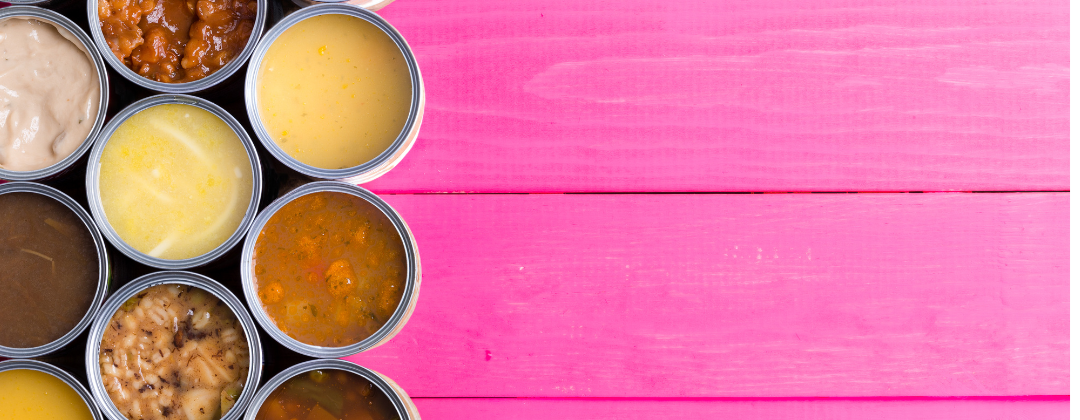Weird Waste: liquid food recycling. From out of date soup to sauce and oil

Weird Waste – recycling liquid food waste
Our #WeirdWaste blog series is here to answer the age-old question: “how am I meant to dispose of this?”
We’re exploring how to recycle, reuse or dispose of unusual household items. Come with us, as we go beyond bottles, cans and card! Today, we’re going to tell you how to recycle food waste that is liquid, things like out of date soup, curry, jars of sauce and we’ll even tell you the best way to dispose of cooking oil.
Say goodbye to blocked sinks and stinky bins, here’s how to recycle liquid food waste.
 Always put food waste in your brown bin so it can be recycled
Always put food waste in your brown bin so it can be recycled
When you use your brown bin to recycle food waste, (from tea bags and coffee grounds to plate scrapings, bones, peels and mouldy or out-of-date items) that food goes on to become renewable biogas and soil improver, powering thousands of local homes and helping grow crops.
What counts as recyclable food waste?
You should recycle all biodegradable waste that comes from food and cooking. Here are some examples:
- Leftovers (anything left on dinner plates or scrapings from almost-empty jars and cans)
- The inedible bits from fruit or veg (banana peel, onion skins, apple cores, peach stones)
- Veg peel
- Meat bones and gristly bits
- Tea bags
- Coffee grounds
- Mouldy or off food (the brown bin doesn’t mind if things are out of date!)
- Wilted salad (Just take it out of any plastic packaging)
- Stale bread or cereal
- Stinky pulses
- …Just about any other biodegradable kitchen waste!
How do you recycle liquid food?
Liquid food is trickier. It’s messy, it can be unpleasant and your recycling crew might not be able to get it out of your brown food waste bin to recycle it.
There isn’t a definitive answer for how you should recycle liquid food, but here are some options directly from the Bristol Waste team:
 Freeze it ahead of bin day
Freeze it ahead of bin day
One technique is to freeze liquid food ahead of your bin day. Put your out-of-date soup (or the curry you accidentally put sugar in instead of salt) in a tupperware in your freezer.
Before your recycling crew arrives on bin day, tip it out into a composable liner or wrap it in newspaper and pop the now-solid food waste into your brown bin.
This won’t work in very hot weather or if your crew tend to collect your bins in the afternoon.
By making the liquid food solid when it’s collected, it makes it much more likely it will survive the journey to being recycled. Plus, it means you minimise mess in your bins and in the recycling truck!
 Add it to other, absorbent food waste
Add it to other, absorbent food waste
This means you reduce mess in your bin and it makes it more likely your liquid food waste will survive the journey to be recycled.
 Double, or even triple bag it. Or wrap it in lots of newspaper
Double, or even triple bag it. Or wrap it in lots of newspaper
Put newspaper at the bottom of your bin and help our crews get all of your food waste out of your bin and into the truck.
It also makes it easier for you to keep your bin clean!
Cooking oil and fat:
 Recycle large amounts of cooking oil by taking it to your local household reuse and recycling centre
Recycle large amounts of cooking oil by taking it to your local household reuse and recycling centre
Save up cooking oil in a sealed bottle or can and take it with you on your next trip to the recycling centre.
 Small amounts of cooking oil or fat can be recycled in your brown food waste recycling bin
Small amounts of cooking oil or fat can be recycled in your brown food waste recycling bin
Mix a bit of oil or cooking fat in with other food waste recycling. This is a straightforward way to dispose of it directly from home.
Set aside liquid fat so it can cool and solidify before you put it into your brown food waste bin.
 Avoid putting oil or fat down the sink
Avoid putting oil or fat down the sink
It can block drains, making nasty smells and leading to expensive plumbing bills!
Got a suggestion of what #WeirdWaste we should cover in our next blog?
Let us know via our social media channels
